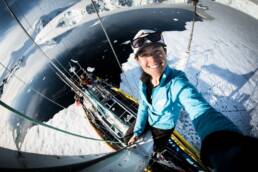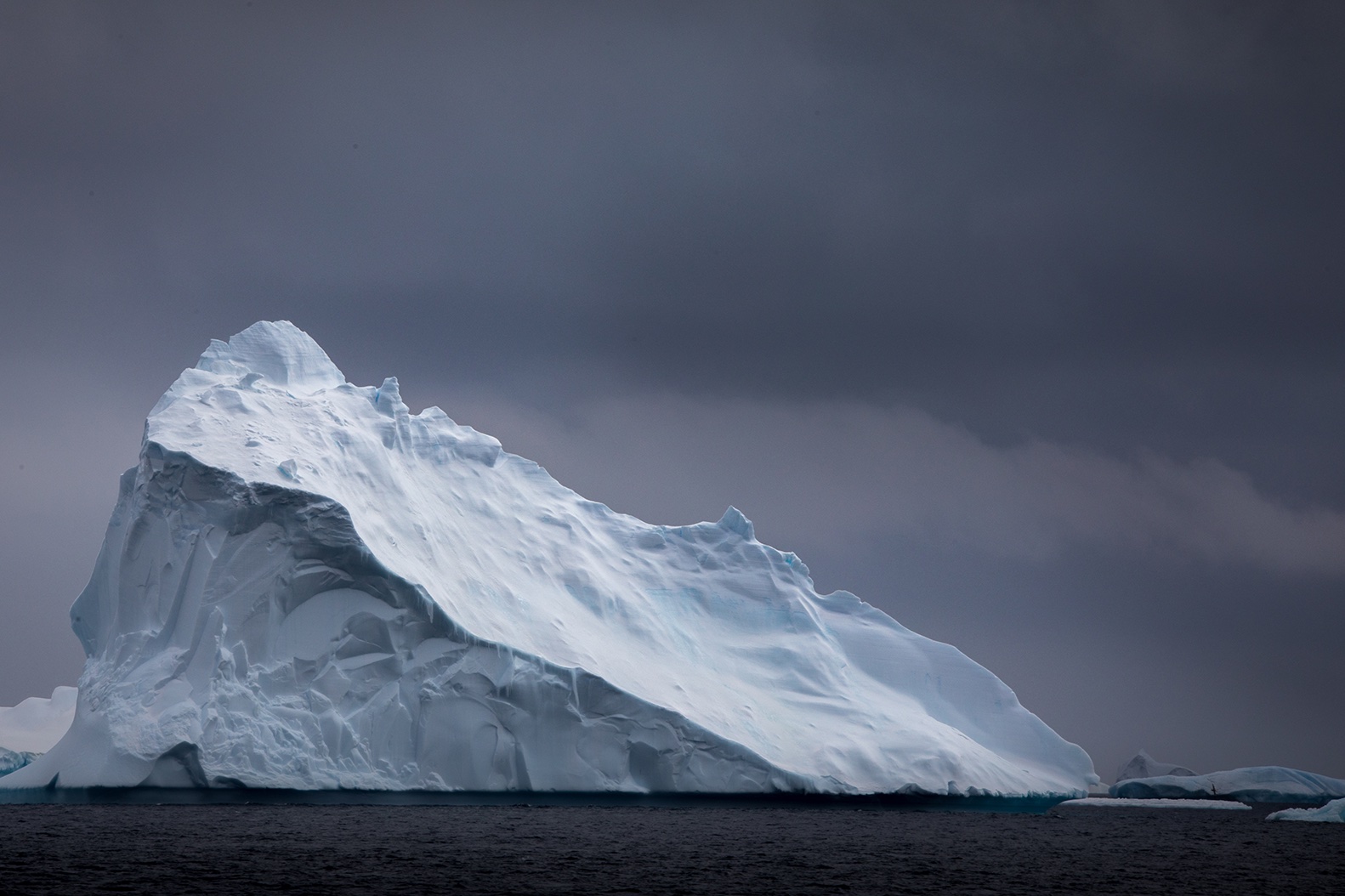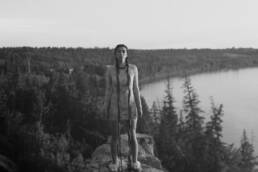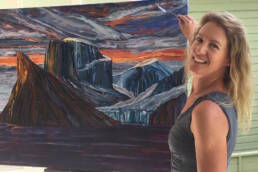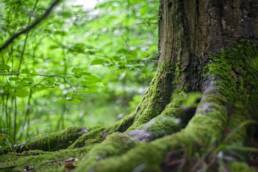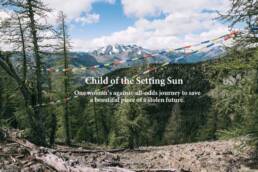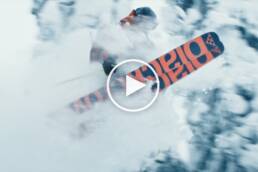In late 2022, I pitched a profile to Kootenay Mountain Culture Magazine about an exceptional person named Natalie Gillis. In her 33 years to that point, Nat had packed more into living than many people twice her age. As a pilot, wilderness adventure guide, poet, and photographer, her life seemed so big, as though she could stretch time to meet her varied interests. Yet, she was also humble, thoughtful, and kindhearted. It was these latter aspects of her character that drew me to her.
Nat’s profile, now posted here, was first published in the magazine’s Summer 2023 Issue #43. Tragically, on June 17, 2024, she was killed in a plane crash in Albany, New York, after experiencing a serious loss of control of her aircraft. She had recently received her Airline Transportation Pilot’s License, the highest level of certification one can earn as a civil airline pilot. An investigation is underway to establish the cause of the crash.
Nat’s early departure from this world has left a tremendous hole in the lives of all who knew her. This profile now serves as tribute to an amazing woman. May we all live larger because of Nat.
— Meghan J. Ward, June 2024
Commercial pilot Natalie Gillis has sailed the Southern Ocean and guided expeditions in the High Arctic. We race to catch up with a young adventurer to discover why she’s so fly. Photos by Natalie Gillis.
It is late 2019 when seasoned adventurer Natalie Gillis comes upon an unfamiliar scenario. She has been hired as a sea-kayak guide to accompany six clients aboard a 60-foot sailboat destined for Antarctica. As she stands on a dock on the southern tip of South America, in Ushuaia, Argentina, she realizes she has a lot to learn—she has no idea how to climb aboard this large vessel. She has never been on a sailboat before, let alone one destined to cross the famously treacherous Drake Passage, where waves can reach 12 metres high. She spends five days crossing the water, tethered to the boat, wondering if the kayaks she’d tied down by hand would be lost to the sea. “This sailboat was either airplaning or submarining with every crest and wave,” Gillis says. During one of her three-hour stints on watch at the helm, going up and down and “crashing like craziness,” she remembers thinking, “Oh, my god. What have I gotten myself into?”
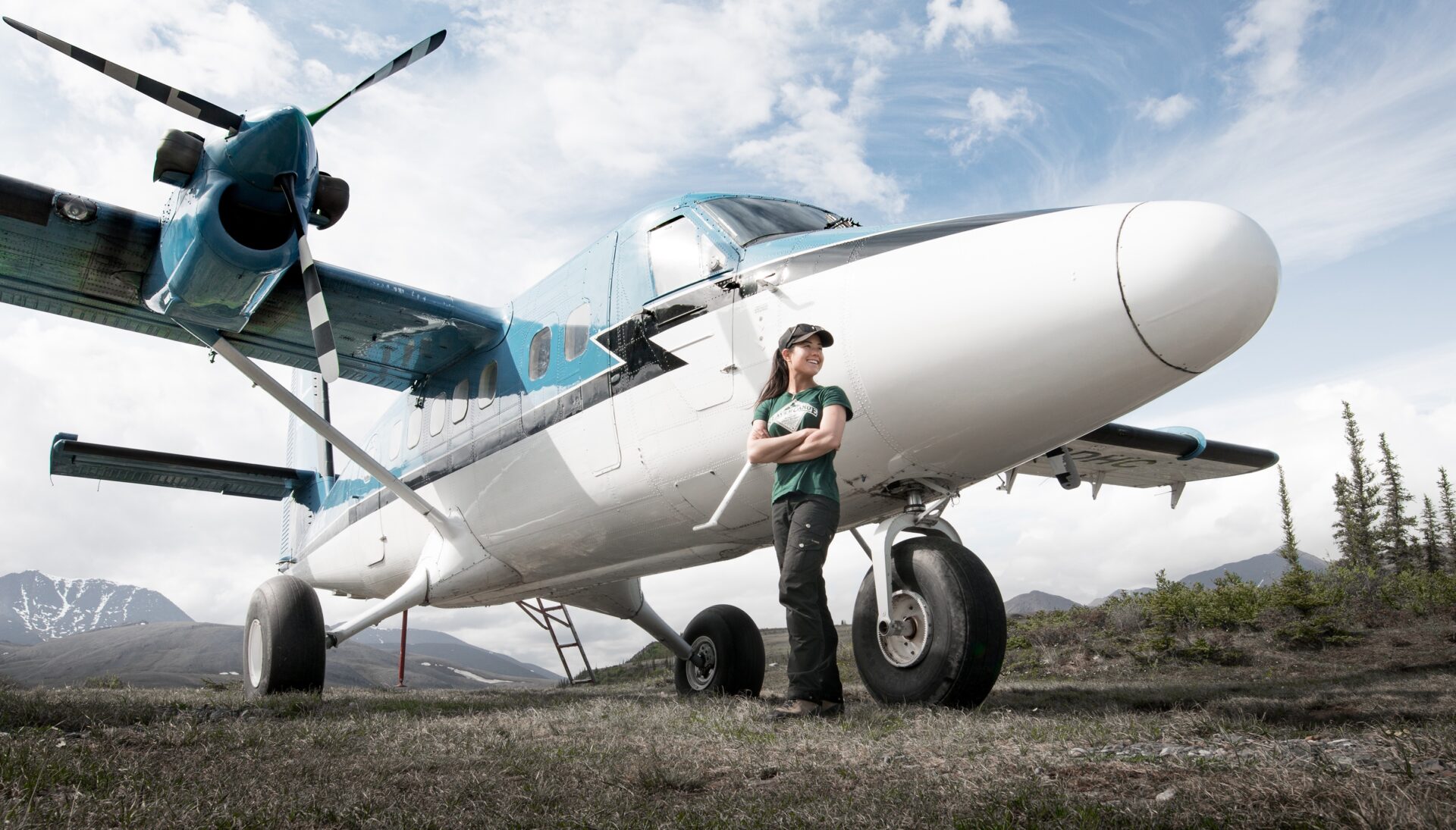
To people who know Gillis, it might be surprising to hear the Drake’s wild waves ruffled her. The Calgary, Alberta-based adventurer has credentials and experiences that could span several lifetimes. She’s a wilderness expedition guide with 10 years of experience working in the Canadian Arctic, Greenland, and Antarctica. She has her Canadian commercial pilot’s licence, and she flies charter aircraft at both poles for remote scientific missions; mail and grocery deliveries to northern Inuit communities; military contracts; and supporting adventurers, explorers, and filmmakers.
Gillis has the hard skills to keep people alive in the wilderness and a burgeon-ing creative side. An accomplished photographer with a striking, minimalist style, she holds a master’s degree in creative and critical writing from England’s University of Gloucestershire. Her collection of poetry, This Is Where Atlantis Sank, chronicles her sailboat journey across the Drake Passage. She’s also only 33 years old.
Gillis thrives on the extreme and exceptional. In the Arctic, her guided hiking and kayaking trips on Baffin, Ellesmere, and Bylot Islands require her groups to be self-supported for two weeks at a time. For ice-floe-edge expeditions, she drives snowmobiles across the sea ice, towing wildlife photographers in qamutiiks (sleds) behind her. In the Twin Otter, she flies low and slow so wildlife biologists can scan the coastlines for narwhals and walruses. She also brings supplies to people maintaining the sites of the Distant Early Warning Line, a series of radar stations installed during the Cold War to detect Russian bombers or sea and land invaders. In Antarctica, the Twin Otter is outfitted with skis so she can land on snow or ice with scientists or expeditioners. She has helped German scientists retrieve data from weather-monitoring equipment; assisted climbers, like Conrad Anker and Alex Honnold, with their film projects; and done medevac flights for skiers in distress.
She has helped German scientists retrieve data from weather-monitoring equipment; assisted climbers, like Conrad Anker and Alex Honnold, with their film projects; and done medevac flights for skiers in distress.
Born in suburban Toronto, Gillis was not raised to love the out-doors. But an opportunity to go kayaking at a friend’s cottage planted a seed in young Gillis, and from that point, she was determined to have her own kayak. One winter, she delivered newspapers and flyers to people’s homes three days a week and saved every penny for her purchase. When she came up short, her mother pitched in. They showed up at a store in Oakville, Ontario, in a Toyota Corolla with no roof rack and bought a kayak, later wondering how they’d get it home. It’s a testament to Gillis’s general approach to life: dream it, do it, and figure out the details as you go. She took up kayaking, then day-trip guiding with a downtown Toronto harbourfront outfit. Then, in 2006, while she was still in high school, she joined Outward Bound on a kayaking expedition to Lake Superior. “I knew, ‘This is it. This is what I want to do with the rest of my life,’” she says.
Her path to full-time guiding involved incremental steps and opportunistic thinking. She kept up with skills courses, and, in her first year of university, Gillis landed an internship with Black Feather, a reputable wilderness adventure company. She packed food for trips, and in return, she apprenticed on kayaking trips in Georgian Bay. Day trips became weekend trips, then week-long trips. A posting up north to apprentice with Arctic guides turned into an assistant guide job, then elite guiding, then to the ultimate responsibility: solo guiding.
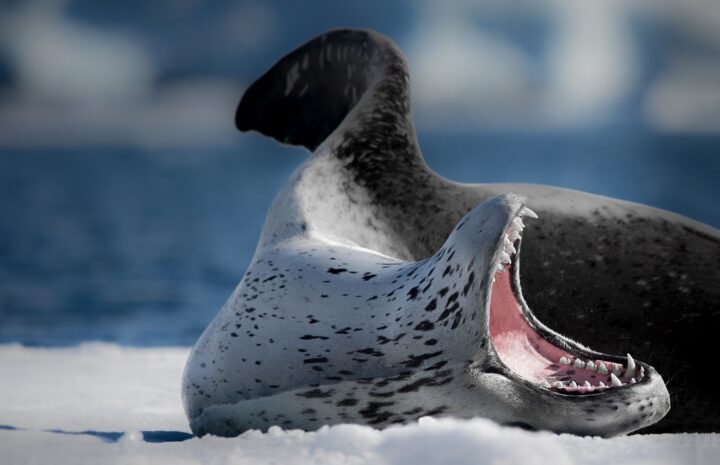
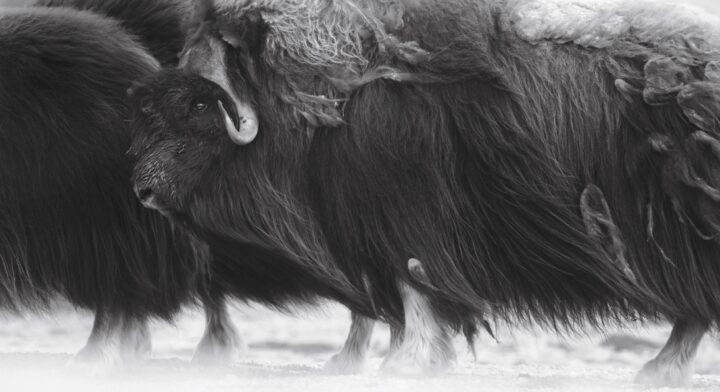
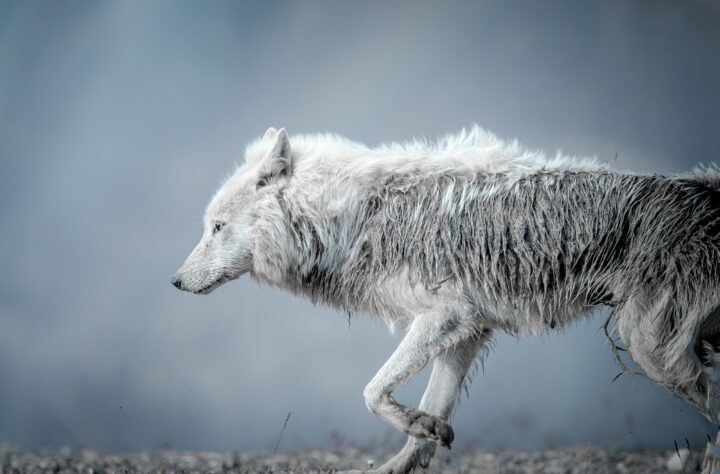
Currently, she’s stepping away from guiding to spend more time in the air. Gillis needs 500 more flying hours to meet the requirements of the airline trans-port pilot licence, and she explains you have to sacrifice a lot when you start to work in the aviation industry, which includes taking on a massive financial commitment. For her, one of the biggest sacrifices involves her interpersonal relationships. Whether guiding or flying, she’s often away, off the grid entirely, missing birthdays and other special occasions. “I did the math, and I think I slept in my own bed 25 days in a calendar year after getting started with the aviation career,” she says.
“I did the math, and I think I slept in my own bed 25 days in a calendar year after getting started with the aviation career.”
Gillis seems hardwired with enthusiasm, but what ultimately compels her to endure such a challenging lifestyle is her approach to progress. “I think what it is for me is a commitment to growth. It’s waking up and thinking, ‘I want to be slightly better than I was yesterday and the day before that.’” What’s clear is that she doesn’t limit herself. Scan her social media accounts and you’ll find her atop a mast over Antarctic seas, celebrating her graduation in cap and gown, and donning a black dress and showcasing her pin as a newly minted fellow of the Royal Canadian Geographical Society.
Gillis is proof we can do many things—and do them well. But more so, she is invested in a slow and steady commitment to growth. She’s completing another master’s degree focusing on political ecology in the eastern Arctic while she works toward her transport pilot’s licence, a certification that could land her in the captain’s seat of a jet. Her other goals are more solitary. She’d love nothing more than to load her kayak with food and head off on her own to paddle, sleep on beaches, and write in her journal by a campfire. Her dream trip is to kayak the Inside Passage, from Bella Bella, British Columbia, up to Alaska. “I discover more about myself when I’m just by myself in the wilderness,” she says.
For people who may feel stuck in the mundane or the familiar, Gillis has some advice. While she’s clearly a go-getter, she says nothing has happened by accident. She recommends people take a paper and pen and simply try to answer some questions: What do I want to do? How am I going to get there? Gillis admits she also has unfulfilled dreams, and that’s okay. But for the dreams people really want to go after, she says you just need to have a plan and be ready to put in the work. “If you don’t capture an opportunity when it’s right in front of you,” she cautions, “it might not be there tomorrow.” Her own wildlife photography has presented her with fleeting moments where she needs to make a quick call, like the time birds following her boat through the Drake Passage were positioned in a perfect light. “If you don’t get your camera and take those pictures right now,” she says, “those birds might not be there tomorrow.”
Based in Banff, Alberta, Meghan J. Ward is an outdoor, travel, and adventure writer, and a fellow of the Royal Canadian Geographical Society. Her latest book is the memoir Lights to Guide Me Home.
Related Stories
New Photography Exhibit Opens At Touchstones in Nelson
Touchstones, the Nelson, British Columbia museum, has opened two new photography exhibitions this month including…
Explorer Laura Adams Is Enjoying A Two-Dimensional Adventure Lately. This Is It.
Laura Adams has had some incredible adventures during her lifetime: from solo climbing in the Himalayas to ski guiding…
“Attack of La Niña” Athlete Extra – James Heim
Heimer shredding throughout British Columbia for the entire 2010/2011 winter - a great place to be! From Golden Alpine…
“Big Trees” Author To Speak in Nelson
Terry Nelson is the author of the newly released "Big Trees of the Inland Temperate Forests of British Columbia" and…
“Child Of The Setting Sun” – The Writing
Our Editor-in-Chief Mitchell Scott has penned one of the most incredible stories we've ever heard. It was just…
“Dreaming Of A Better Place” Film Drops Today
A short documentary called "Dreaming of a Better Place" has been released online and it tells the heartfelt story about…


